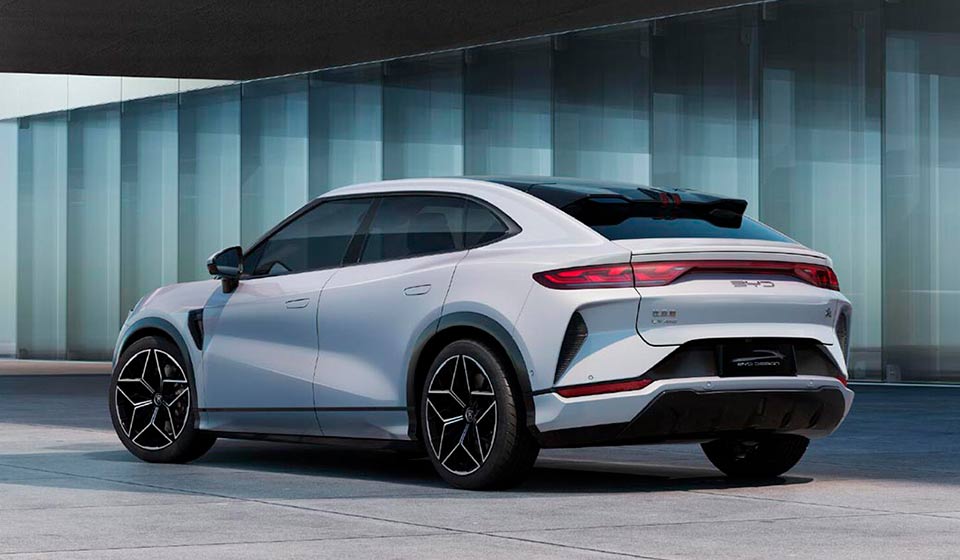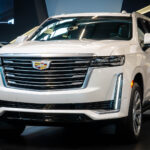Effective July 1, 2025, the Kenya Revenue Authority (KRA) has implemented a new Current Retail Selling Price (CRSP) schedule for computing the customs value of used motor vehicles imported into Kenya. This schedule includes a comprehensive range of BYD (Build Your Dreams) vehicles, a leading Chinese manufacturer known for its affordable, high-quality electric vehicles (EVs). For Kenyan importers, dealers, and eco-conscious buyers, understanding the new CRSP values is essential for navigating the costs of importing BYD models in 2025. This detailed article provides a complete breakdown of the CRSP schedule for BYD vehicles, offering insights into pricing, trends, and their significance in Kenya’s growing electric vehicle market.
Understanding the CRSP and Its Importance
The Current Retail Selling Price (CRSP) is a standardized valuation metric used by the KRA to determine the customs value of imported used vehicles. This value directly impacts customs duties, Value Added Tax (VAT), and other levies, influencing the final cost for buyers. The CRSP is based on the vehicle’s market value in its country of origin, adjusted for factors such as age, condition, and specifications.
The 2025 CRSP update, effective from July 1, reflects global trends toward sustainable mobility and Kenya’s increasing adoption of electric vehicles. BYD, a global leader in EV technology, offers a diverse lineup of SUVs, sedans, hatchbacks, and crossovers, all powered by advanced battery systems. The CRSP schedule affects importers, dealers, and consumers seeking affordable, eco-friendly transportation solutions in Kenya.
Key Factors Influencing BYD CRSP Values
- Battery Capacity: Larger battery capacities (e.g., 91.3 kWh in the Sealion 7 AWD Excellence) result in higher CRSP values due to extended range and performance.
- Drivetrain: All-wheel-drive (AWD) models command higher prices than front-wheel-drive (FWD) or rear-wheel-drive (RWD) variants.
- Vehicle Type: Sedans, SUVs, hatchbacks, and crossovers cater to different market segments, influencing CRSP values.
- Market Demand: Kenya’s push for sustainable transport boosts demand for EVs, impacting CRSP valuations.
BYD’s Position in Kenya’s Electric Vehicle Market
BYD has emerged as a key player in Kenya’s burgeoning EV market, offering affordable, reliable, and technologically advanced electric vehicles. Known for its Blade Battery technology, long-range capabilities, and competitive pricing, BYD appeals to a wide range of Kenyan buyers, from urban commuters to families seeking versatile SUVs. The 2025 CRSP schedule underscores BYD’s growing presence, positioning it as a leader in Kenya’s transition to sustainable mobility.
Why BYD is Popular in Kenya
- Affordability: BYD vehicles like the Atto 2 and Dolphin 44.9 Active offer competitive CRSP values, making EVs accessible to a broader market.
- Sustainability: All BYD models in the schedule are fully electric, aligning with Kenya’s environmental goals and policies promoting green transport.
- Versatility: The lineup includes hatchbacks, sedans, SUVs, and crossovers, catering to diverse consumer needs.
- Advanced Technology: Features like the Blade Battery, fast charging, and modern infotainment systems enhance BYD’s appeal.
Comprehensive List of BYD CRSP Values for 2025
Below is the complete list of BYD vehicles included in the KRA’s 2025 CRSP schedule, categorized by model type for clarity. Prices are in Kenyan Shillings (KES) and reflect the customs value for used vehicles. All models are fully electric, with battery capacities listed in kilowatt-hours (kWh).
BYD SUVs
BYD’s SUVs combine practicality, range, and performance, ideal for families and long-distance travel.
| Model | Chassis Code | Drivetrain | Battery (kWh) | Vehicle Type | CRSP (KES) |
|---|---|---|---|---|---|
| Atto 3 | – | FWD | 60.5 | SUV | 14,434,329 |
| Tang | – | AWD | 86.4 | SUV | 27,128,484 |
| Tang Flagship | – | AWD | 108.8 | SUV | 19,837,704 |
| Sealion 7 91.3 AWD Excellence | – | AWD | 91.3 | SUV | 16,809,971 |
| Sealion 7 82.5 RWD Comfort | – | RWD | 82.5 | SUV | 13,675,377 |
| Sealion 7 82.5 AWD Design | – | AWD | 82.5 | SUV | 15,385,156 |
| Seal U 87 kWh Design | – | FWD | 87.0 | SUV | 12,820,488 |
| Seal U 71.8 Comfort | – | FWD | 71.8 | SUV | 11,965,599 |
BYD Sedans
BYD’s sedans offer sleek designs and long ranges, appealing to urban professionals.
| Model | Chassis Code | Drivetrain | Battery (kWh) | Vehicle Type | CRSP (KES) |
|---|---|---|---|---|---|
| Seal 82.5 AWD Excellence | – | AWD | 82.5 | Sedan | 16,606,019 |
| Han | – | FWD | 85.4 | Sedan | 22,477,886 |
| Seal 82.5 RWD Design | – | RWD | 82.5 | Sedan | 14,651,986 |
| Seal 61.4 RWD Comfort | – | RWD | 61.4 | Sedan | 9,504,088 |
BYD Hatchbacks
Compact and efficient, BYD’s hatchbacks are perfect for city driving.
| Model | Chassis Code | Drivetrain | Battery (kWh) | Vehicle Type | CRSP (KES) |
|---|---|---|---|---|---|
| Dolphin 60.4 kWh | – | FWD | 60.5 | Hatchback | 10,743,922 |
| Dolphin 44.9 Active | – | FWD | 44.9 | Hatchback | 9,766,905 |
| Dolphin 44.9 Boost | – | FWD | 44.9 | Hatchback | 10,743,922 |
BYD Crossovers
The Atto 2 offers a compact, versatile option for urban and suburban use.
| Model | Chassis Code | Drivetrain | Battery (kWh) | Vehicle Type | CRSP (KES) |
|---|---|---|---|---|---|
| Atto 2 | – | FWD | 45.1 | Crossover | 7,292,775 |
Key Trends in the 2025 BYD CRSP Schedule
1. Affordable Electric Mobility
BYD’s CRSP values, ranging from KES 7,292,775 (Atto 2) to KES 27,128,484 (Tang), position the brand as a leader in affordable EVs, making electric mobility accessible to a broader Kenyan audience compared to luxury brands like BMW or Bentley.
2. Diverse Battery Capacities
Battery sizes range from 44.9 kWh (Dolphin Active/Boost) to 108.8 kWh (Tang Flagship), offering options for short urban commutes and long-distance travel. Larger batteries correlate with higher CRSP values due to extended range.
3. All-Wheel-Drive Options
AWD models like the Tang, Sealion 7 AWD Excellence, and Seal AWD Excellence cater to buyers seeking enhanced traction and performance, particularly in Kenya’s varied terrains.
4. Focus on Sustainability
All BYD models are fully electric, aligning with Kenya’s environmental policies and global trends toward zero-emission vehicles. The absence of petrol or hybrid options emphasizes BYD’s commitment to sustainability.
Implications for Kenyan Importers and Buyers
The 2025 CRSP schedule has significant implications for Kenya’s electric vehicle market:
- Cost-Effective EVs: Competitive CRSP values, such as KES 7,292,775 for the Atto 2, make BYD vehicles more affordable than many European EVs, encouraging wider adoption.
- Growing EV Demand: The focus on electric models aligns with Kenya’s push for sustainable transport, potentially benefiting from tax incentives for EVs.
- Market Expansion: BYD’s diverse lineup appeals to various segments, from budget-conscious buyers (Dolphin, Atto 2) to those seeking premium SUVs (Tang, Sealion 7).
- Dealer Opportunities: Dealers can capitalize on BYD’s affordability and sustainability to attract a growing middle-class market, particularly in urban centers like Nairobi and Mombasa.
Navigating the BYD CRSP Schedule in Kenya
To import and own a BYD vehicle in Kenya, buyers and importers should follow these steps:
- Verify Battery Specifications: Confirm the vehicle’s battery capacity and drivetrain to ensure accurate CRSP valuation by the KRA.
- Calculate Total Costs: Include customs duties (25% of CRSP), 16% VAT, and import declaration fees (3.5% of CRSP) to estimate the landed cost. EVs may qualify for reduced duties under Kenya’s green vehicle policies.
- Explore Financing Options: Affordable CRSP values make financing through banks or dealers viable for many buyers.
- Leverage EV Incentives: Check for potential tax exemptions or incentives for electric vehicles, which could lower costs.
- Consult Customs Experts: Work with experienced customs agents to streamline the import process and avoid valuation disputes.
Tax Calculation Example
For a BYD Tang (CRSP: KES 27,128,484):
- Customs Duty: 25% of CRSP = KES 6,782,121
- VAT: 16% of (CRSP + Customs Duty) = KES 5,424,897
- Import Declaration Fee: 3.5% of CRSP = KES 949,497
- Total Taxes (approx.): KES 13,156,515
- Landed Cost (approx.): KES 40,284,999
Note: EVs may qualify for reduced customs duties or exemptions, potentially lowering the total cost. Buyers should verify with the KRA.
Market Insights: BYD in Kenya’s EV Landscape
BYD is rapidly gaining traction in Kenya’s electric vehicle market, competing with brands like Tesla, BMW i Series, and Nissan Leaf. Its affordability, advanced battery technology, and diverse lineup make it a strong contender. Models like the Atto 3 and Dolphin are ideal for urban commuters, while the Tang and Sealion 7 appeal to families and long-distance travelers. The brand’s focus on sustainability aligns with Kenya’s environmental goals, supported by government initiatives to expand EV infrastructure, such as charging stations in Nairobi and Mombasa.
Competitive Landscape
BYD competes with:
- Tesla: Offers premium EVs but at higher price points.
- BMW i Series: Targets luxury buyers with higher CRSP values.
- Nissan Leaf: A budget-friendly EV, but with shorter ranges compared to BYD’s larger battery options.
- Hyundai Ioniq: Similar affordability, but BYD’s broader lineup gives it an edge.
Consumer Preferences
Kenyan buyers prioritize:
- Affordability: Models like the Atto 2 and Dolphin Active appeal to cost-conscious buyers.
- Range: Larger batteries (e.g., Tang’s 108.8 kWh) suit long-distance travel.
- Practicality: SUVs like the Sealion 7 and Tang cater to families and rugged terrains.
- Technology: BYD’s Blade Battery and fast-charging capabilities enhance appeal.
Future Outlook for BYD in Kenya
The 2025 CRSP schedule positions BYD as a leader in Kenya’s electric vehicle market, with competitive pricing and a focus on sustainability. As Kenya expands its EV charging infrastructure and introduces policies to promote green transport, BYD’s affordable and versatile lineup is likely to see increased demand. The brand’s ability to offer premium models like the Tang Flagship alongside budget-friendly options like the Atto 2 ensures broad market appeal. Dealers may invest in BYD-specific showrooms and service centers to capitalize on this growth, particularly in urban areas.
The absence of hybrid or petrol models in the CRSP schedule reinforces BYD’s all-electric strategy, aligning with global trends and Kenya’s environmental goals. Potential tax incentives for EVs could further reduce costs, making BYD a top choice for Kenyan buyers in 2025.
The 2025 CRSP schedule for BYD vehicles highlights the brand’s leadership in Kenya’s electric vehicle market, offering a range from the affordable Atto 2 (KES 7,292,775) to the premium Tang (KES 27,128,484). With a focus on sustainability, advanced technology, and competitive pricing, BYD caters to a wide range of Kenyan buyers, from urban commuters to families. Importers and buyers must navigate customs duties and taxes carefully, leveraging potential EV incentives to optimize costs. As Kenya’s EV market grows, BYD’s innovative lineup positions it as a key player in the country’s sustainable transport future in 2025.





